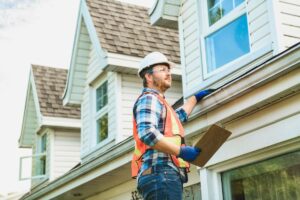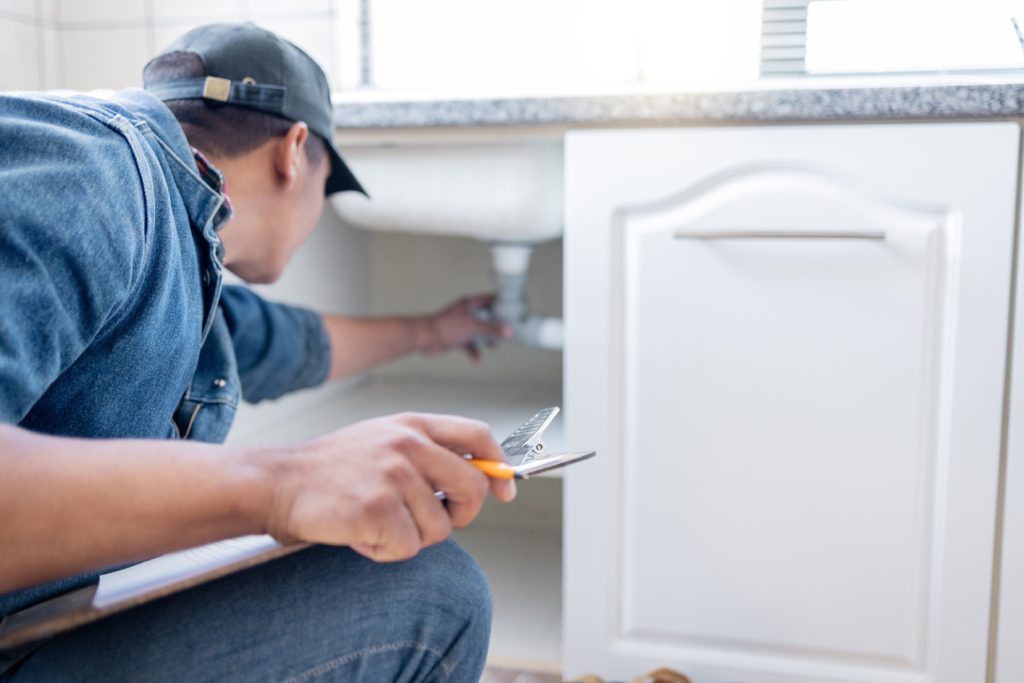
When buying or selling a home, a thorough home inspection is essential. Whether you’re a buyer ensuring your new place is in good condition or a seller wanting to address issues before listing, a home inspection can save you from future headaches. Below is a comprehensive checklist to guide you through the process, ensuring that both buyers and sellers are well prepared.
Home Inspection Checklist for Sellers
1. Exterior of the Home
- Roof: Check for missing, damaged, or curling shingles. Ensure the roof is in good condition to avoid potential water damage.
- Gutters and Downspouts: Ensure they are clear of debris and properly diverting water away from the house.
- Siding: Inspect for cracks, warping, or signs of water damage.
- Windows and Doors: Make sure all windows and doors open and close smoothly. Check for broken seals or damaged frames.
- Garage Doors: Test the garage doors to ensure they open and close properly and that the automatic reverse function works.
2. Interior of the Home
- Walls and Ceilings: Look for cracks, water stains, or any signs of water damage.
- Floors: Check for uneven surfaces, squeaks, or soft spots that could indicate underlying issues.
- Windows and Doors: Confirm that all windows and doors are in good working order, with no drafts or broken locks.
- Electrical Systems: Test outlets and switches. Ensure that the electrical panel is up-to-date and that all systems are in working order.
- Plumbing: Check under sinks for leaks, test water pressure, and ensure the water heater is functioning correctly.
- HVAC System: Inspect the heating and cooling systems. Check air filters and make sure the thermostat is working.
- Water Heater: Confirm the water heater is in good condition with no leaks and that it heats water efficiently.
3. Attic and Crawl Space
- Insulation: Check the attic for proper insulation and ventilation to avoid heat loss or moisture buildup.
- Pests: Look for signs of pests like rodents or insects.
- Crawl Space: Inspect for moisture, mold, or structural issues that could cause potential problems.

4. Basement and Foundation
- Foundation: Look for cracks or signs of settling, which could indicate structural issues.
- Water Damage: Check for any signs of water damage or dampness in the basement.
- Septic Tank: If applicable, ensure the septic tank is in good working order and has been recently serviced.
5. Systems and Appliances
- Electrical Panel: Verify that the electrical panel is labeled correctly and is free of any rust or corrosion.
- Plumbing Systems: Check for leaks, especially around toilets, sinks, and showers.
- Water Heater: Ensure the water heater is functioning properly and check for any potential leaks.
- HVAC System: Confirm the HVAC system is in good working condition, with clean air filters and no strange noises.
- Appliances: Test all major appliances to ensure they are in good working order.
- Septic Tank: If the home has a septic tank, ensure it is functioning correctly and has been recently inspected.
6. Exterior Structures
- Decks and Patios: Inspect for rotting wood, loose boards, or other structural issues.
- Fencing: Ensure the fence is stable and in good condition.
- Garage Doors: Test the operation of the garage doors and inspect for any signs of wear and tear.
Do I Need a Certified Home Inspector?
Both sellers and buyers benefit greatly from hiring a certified home inspector. For sellers, a certified inspector can identify potential issues before listing, allowing them to address problems that might deter potential buyers. For buyers, an inspector ensures that the home is in good condition and highlights any potential problems that could affect the purchase decision.
A certified professional offers an unbiased, detailed assessment, which is crucial for both parties. When choosing an inspector, it’s important to consult a reputable home inspector list to find qualified professionals who can provide a thorough and reliable inspection.
The Bottom Line
A thorough home inspection is a crucial step in the buying or selling process. By following this house inspection checklist, homeowners can address any potential problems before they become major issues. A certified home inspector can provide a comprehensive home inspection report that outlines any concerns and offers peace of mind for both potential buyers and sellers.
Whether you’re looking to buy a home or preparing to sell, this homeowner inspection checklist will help ensure your property is in tip-top shape. And remember, your real estate agent is a valuable resource in navigating the inspection process and addressing any issues that arise.

